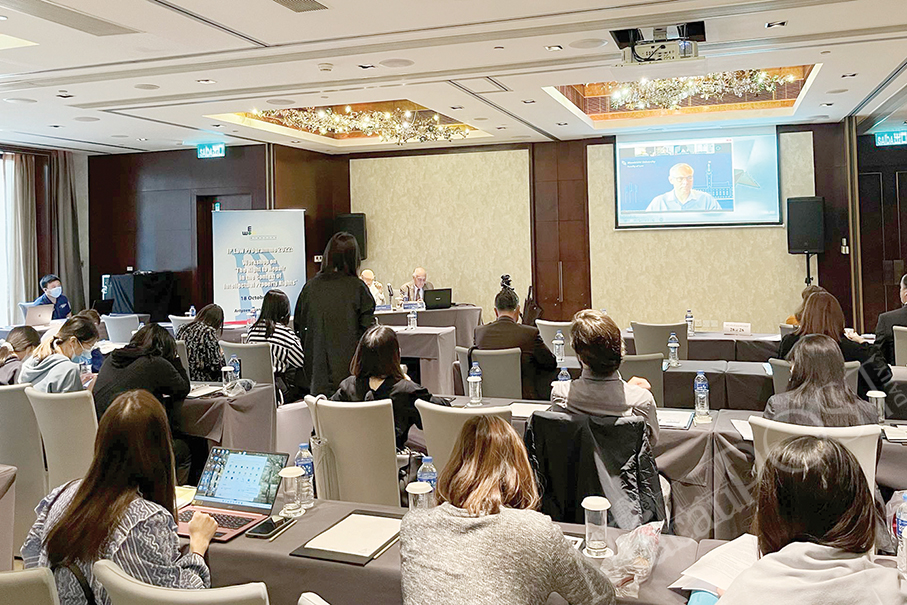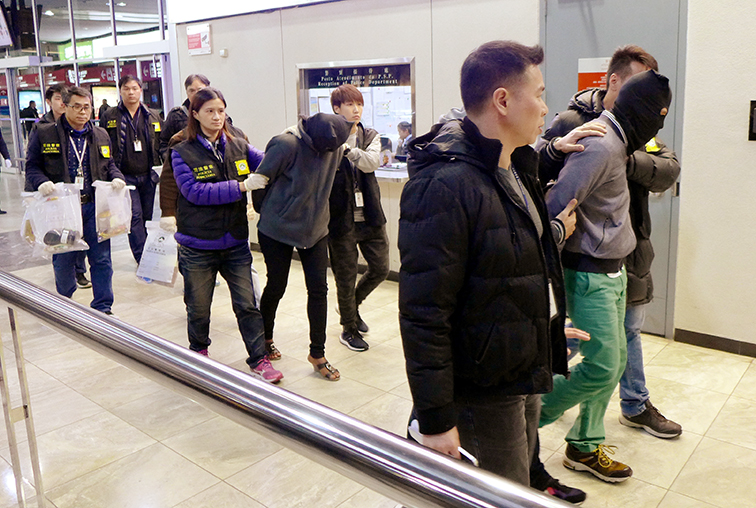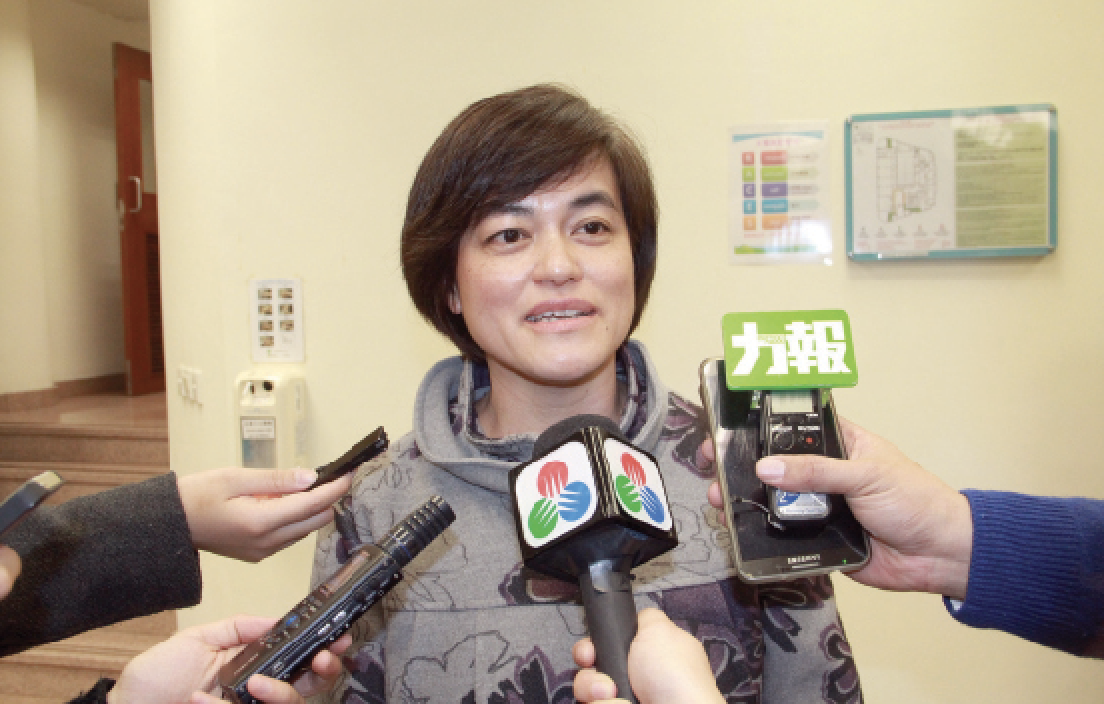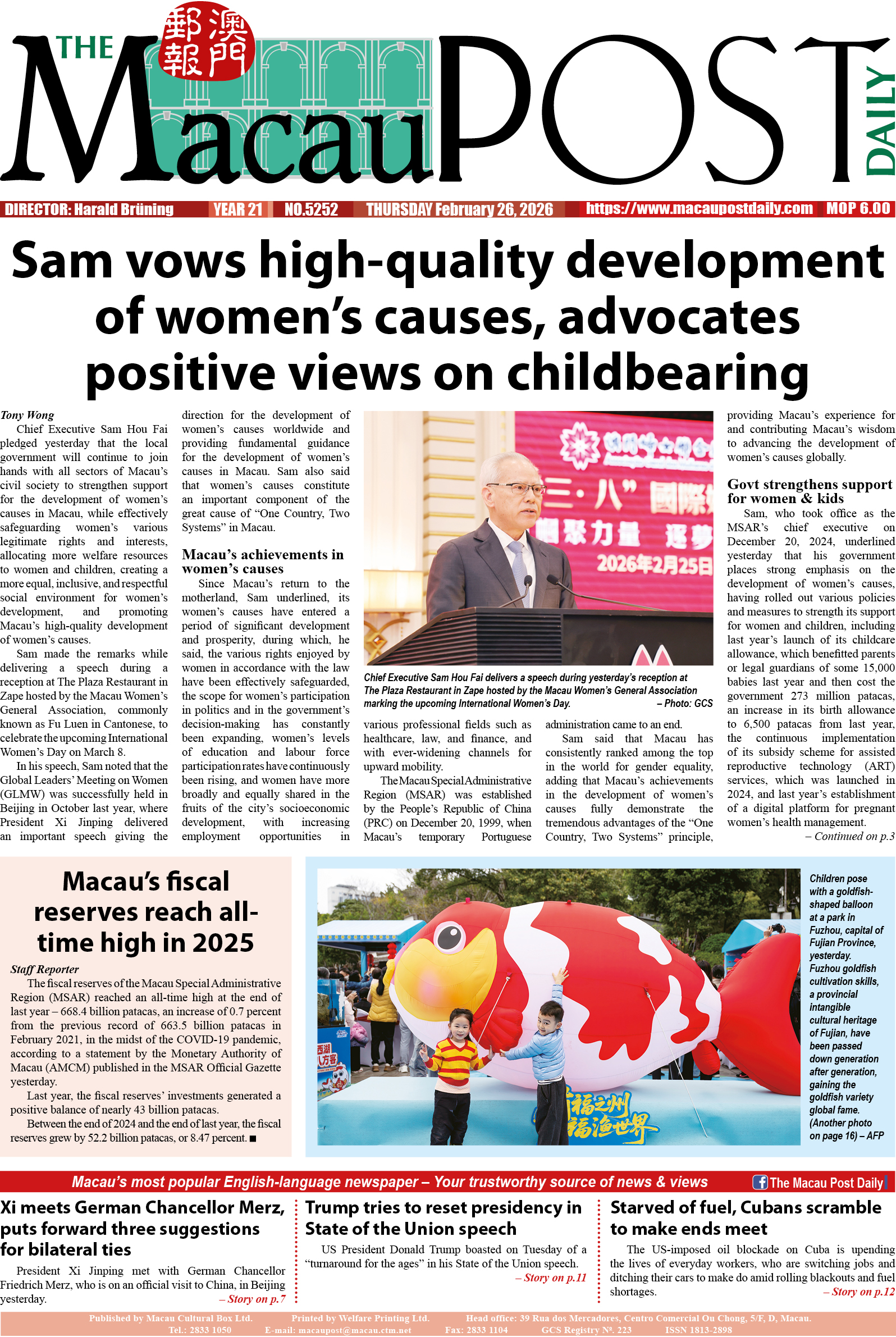The Institute of European Studies of Macau (IEEM) held a workshop yesterday titled “The Right to Repair in the Context of Intellectual Property Rights”, at the Artyzen Grand Lapa Hotel in Avenida da Amizade.
The right to repair, according to Wikipedia, refers to the “proposed government legislation that would allow consumers the ability to repair and modify their own consumer products”, such as electronics, where their manufacturer requires them “to use only their offered services by restricting access to tools and components, or software barriers put in place to hinder independent repair or modification”.
The World Trade Organisation (WTO), meanwhile, defines intellectual property rights as “rights given to persons over the creations of their minds”, usually giving the creator “an exclusive right over the use of his or her creation for a certain period of time”.
The right to repair movement is being reinforced by environmental and sustainability concerns, aiming to extend the life span of used objects, an IEEM statement provided at the event noted. The statement said that the owner’s right to repair is taken as granted, but some businesses attempt to “nullify that right through the enforcement of intellectual property rights”.
Yesterday’s workshop was carried out in collaboration with Maastricht University and had a group of experts from Europe, the US and Japan who gave online talks about the conflict between the right to repair and intellectual property rights, and discussed the topics with the onsite participants at the hotel. The programme included topics such as “How to transform and implement the political goal of a circular economy: Policies and Law”, “The Right to Repair in the field of Patents” and “Discussion on Case Law from Japan”.
About three dozen people attended the workshop offline.

Participants in yesterday’s “The Right to Repair in the Context of Intellectual Property Rights” workshop at Artyzen Grand Lapa Hotel watch the event’s opening remarks. – Photo: Rui Pastorin









